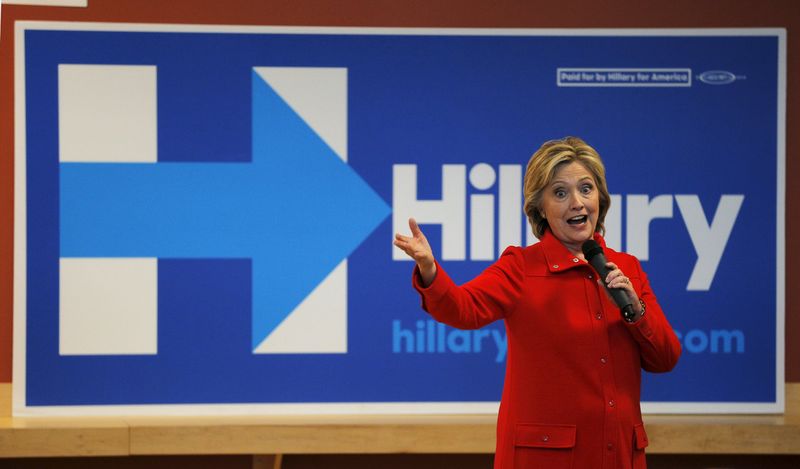By Mark Hosenball
WASHINGTON (Reuters) - The CIA has told Congress that the name of an alleged secret agency source, mentioned but then partially redacted by the U.S. State Department from an email received on Hillary Clinton's private server was not considered by the agency to be secret at all.
At issue is Moussa Koussa, a one-time intelligence chief for Libyan dictator Muammar Gaddafi, and the question of whether or not his name should have been treated as a secret in an email Clinton received four years ago from a close confidant.
Republicans, who are trying to show Clinton mishandled classified information while secretary of state, have argued that Koussa's name should not have been included in the email she got on her private server from Sidney Blumenthal.
But the CIA, weighing in after the Republicans made their accusation earlier this month, has told lawmakers that Koussa's name was not classified, according to correspondence between the spy agency and officials of the House of Representatives panel set up to investigate the Sept. 11, 2012 attacks on a U.S. diplomatic facility and nearby spy base in Benghazi, Libya.
After months of delays and political machinations, Clinton is scheduled to appear before the House Benghazi committee on Thursday to answer questions about her handling of the 2012 attacks, her controversial private email server, and the Obama Administration's Libya policy.
After reviewing Clinton's emails in response to Freedom of Information requests, the State Department made numerous redactions, declaring that in some cases, the material should be considered classified.
Earlier this month, in a reference to Koussa, the Bengahzi committee chairman, Republican Trey Gowdy, complained that Clinton, the front-runner in the Democratic presidential campaign, had received an email on her private server in March 2011 with the name of "a human source."
That represents "some of the most protected information in our intelligence community, the release of which could jeopardize not only national security but also human lives," Gowdy said.
"Armed with that information, Secretary Clinton forwarded the email to a colleague - debunking her claim that she never sent any classified information from her private email address," he added.
Sources familiar with the redaction process said the State Department did redact Koussa's name from the email in question but that the department had done this as part of standard practice to protect the privacy of individuals and not because the department considered the data classified.

In his letter to Gowdy on Sunday, U.S. Representative Elijah Cummings, the Benghazi committee's top Democrat, accused Gowdy of trying to "inflate" the significance of the redacted information and suggested that the "standard operating procedure" of the Benghazi committee had "become to put out information publicly that is inaccurate and out of context in order to attack Secretary Clinton for political reasons."